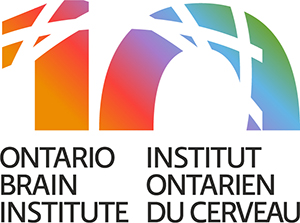Ontario Brain Institute Releases Large Dementia Dataset to Further Accelerate Brain Research, Discovery, and Innovation through Brain-CODE, an Open Science Data Platform
TORONTO, Dec. 8, 2021 /CNW/ - One of the more pressing calls-to-action in the aftermath of the COVID-19 pandemic has been the need to facilitate more accessible, effective, and seamless data sharing across the worldwide research community. The Ontario Brain Institute's (OBI) neuroinformatics platform, Brain-CODE, is achieving just that for global brain disorder research – recently launching their third clinical data release featuring rich data on individuals with dementia.
"Brain-CODE is the result of over a decade of meticulous planning, and I'd argue that opening-up its data sharing features earlier this year could not have come at a more ideal time," says Dr. Tom Mikkelsen, OBI President & Scientific Director. "Brain-CODE has created an opportunity that enables safe and secure data sharing giving researchers, clinicians, and industry the confidence to work together and share data with the world."
Jill Dunlop, Minister of Colleges and Universities, states: "The Ontario government remains committed to supporting research and innovation in the province's health care sector and recognizes how valuable collaboration is to our success. OBI's work continues to support accelerating breakthroughs in brain-related health research, benefiting people in Ontario and beyond."
The latest release comes from the Ontario Neurodegenerative Disease Research Initiative (ONDRI) – one of OBI's Integrated Discovery Programs tasked with addressing the dementia crisis through an in-depth study of neurogenerative and cerebrovascular diseases. The foundational study supporting Brain-CODE's clinical data release recruited 520 participants and their care partners across five neurodegenerative diseases: Alzheimer's disease/mild cognitive impairment; frontotemporal dementia (FTD); amyotrophic lateral sclerosis (ALS); Parkinson's disease and cerebrovascular disease.
Participants went through the same rigorous set of well-planned assessment protocols regardless of disease; for example, completing the same series of eye tracking assessments and neuropsychological questionnaires. A key finding emerged from the novel research that examined MRI from Parkinson's disease patients finding that brain lesions from damage to small blood vessels may be due to rare changes within the NOTCH3 gene. This particular gene is known to be associated with CADASIL, a small vessel disease, but ONDRI's unique design allowed the potential connection to Parkinson's disease to be discovered.
"The novel research results, and the Brain-CODE platform that will help amplify these findings on a global scale, are nothing short of remarkable – particularly for the nearly one in six people suffering from neurodegenerative diseases worldwide," says Dr. Richard Swartz, Co-Lead of ONDRI. "What we must not lose sight of and what we must continue to recognize are the research participants themselves – the people who invest significant time, energy and emotional capital to contribute to ground-breaking research."
"For the study participants reflected in this clinical data release, the most common reasons for taking part include their desire to take some control over their situation; to give back to the community that has taken care of them; and to find answers to questions that have plagued them throughout their journey. Without them none of this is possible."
Brain-CODE, designated a Privacy by Design ambassador by the Information and Privacy Commissioner of Ontario, hosts clean and curated data gathered from OBI's six Integrated Discovery Programs (IDP), spanning in areas of epilepsy, cerebral palsy, neurodegenerative diseases, neurodevelopmental disorders, depression and concussion. The data from all the IDPs feed into Brain-CODE which stores and manages the many different types of information collected, making them accessible to the international research community for their analysis.
Initial sets of clinical research data were released through Brain-CODE in early 2021. The first was data gathered through OBI's neurodevelopmental disorders program (POND Network) and includes behavioural and cognitive assessments for over 3000 children and youth to accelerate the pace of research and advance the understanding of these disorders. The second set the clinical outcomes from the 5P: Predicting Persistent Postconcussive Problems in Pediatrics study with over 3,000 participants between 5 and 18 years of age. Clinical data sets from CAN-BIND focusing on depression are planned for release on Brain-CODE in early 2022.
Dr. Mikkelsen believes that the data-sharing offered through Brain-CODE's safe and secure environment will accelerate discovery and innovation and ultimately help improve the lives of people living with brain disorders.
"Put simply, at OBI, our motivating and driving force is to bring the discoveries and innovations that are developed in the lab and convert them to support people in day-to-day life. Brain-CODE will help accomplish this overarching goal by facilitating important collaborations and data linkages that were otherwise not possible."
Learn more about OBI's data releases on the Brain-CODE website.
About Ontario Brain Institute:
The Ontario Brain Institute is a not-for-profit organization that accelerates discovery and innovation, benefiting both patients and the economy. Our collaborative 'team science' approach promotes brain research, commercialization, and care by connecting researchers, clinicians, industry, patients, and their advocates to improve the lives of those living with brain disorders. Visit braininstitute.ca for more information. Funding provided, in part by, the Government of Ontario.
About Brain-CODE:
Brain-CODE is OBI's state-of-the-art neuroinformatics platform where data streams from OBI's six research programs is assimilated, stored, and analyzed. OBI's Brain-CODE is a "shared brain" for researchers in Ontario and beyond. Visit braincode.ca for more information.
For further information:
Renée Dunk, Senior Lead, Communications, Ontario Brain Institute, [email protected] | 416-562-2695
Allison Garber, Consultant, Ontario Brain Institute, [email protected] | 902-221-5254
SOURCE Ontario Brain Institute


Share this article